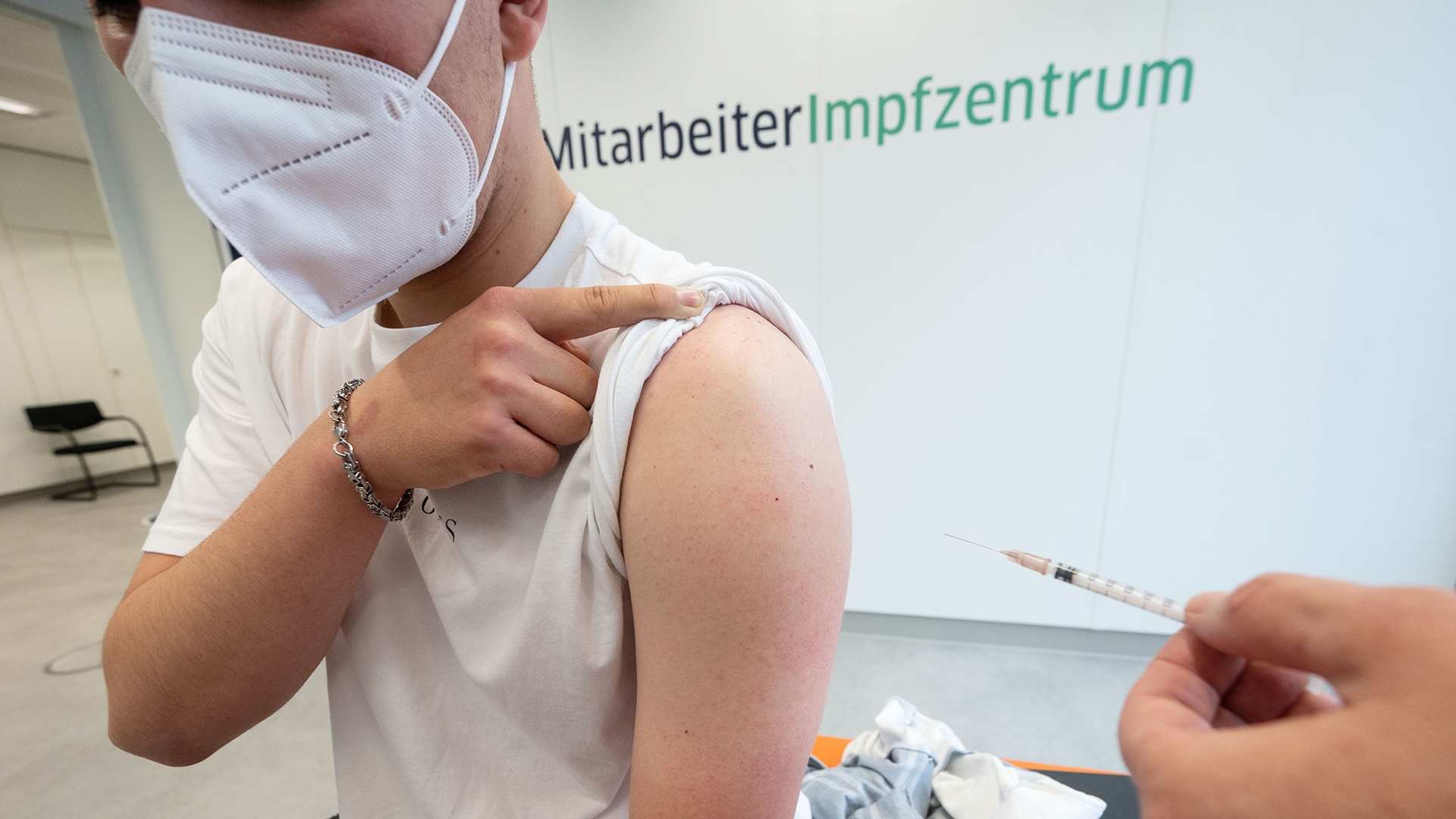Corona protection in companies Are employers allowed to force vaccination?
Status: 08.06.2021 7:13 p.m.
Since the beginning of the week, company doctors have also been able to vaccinate against Covid-19. But what about legally? Can companies require their staff to be vaccinated? And are they allowed to grant privileges to those who have been vaccinated? From Jens Eberl, WDR The companies have a great interest in preventing infections with the coronavirus and sick leave. This is why many employers want their employees to be vaccinated. With the start of vaccinations by the company doctors, various legal issues between employers and employees come to the fore. An overview.
Can the employer oblige his staff to vaccinate?
Employees only need to be vaccinated if there is a legal obligation to do so. There is no statutory vaccination requirement with Covid-19. “However, special features apply in facilities such as hospitals, prevention or rehabilitation facilities and medical practices,” says the Brühl-based specialist lawyer for labor law, Michael Felser. “They must ensure that all measures required by the state of the art of medical science are taken there to prevent infections and the spread of pathogens. Curiously, however, this does not apply in care facilities for the elderly, although the problem here is likely to be comparable”, so Felser. In the health care facilities mentioned, the employer cannot force employees to vaccinate either. However, he must ensure that non-vaccinated people pose no risk to patients. Patient protection can therefore make it necessary that non-vaccinated people can no longer work in certain areas.
Do employees have to inform the employer about their vaccination status?
Actually, there is no obligation to provide information about the personal vaccination status to the employer. However, the Gelsenkirchen labor lawyer Arndt Kempgens emphasizes that companies have to take corona protective measures for their employees. But they could only do that if the corona vaccination status was known. Kempgens concludes from this that in connection with Corona, under labor law – as an exception – there could be an obligation on the part of employees to notify the vaccination status and, under certain circumstances, to prove it.
Are vaccination incentives such as bonus payments from the employer permitted?
Employers could pay a “vaccination bonus”, for example through a one-off sum of money, vouchers or extra vacation days. Lawyer Felser says: “This is not entirely uncritical, because rewards can exert undue pressure not to exercise one’s rights. For example, courts have only declared rewards for employees who rarely get sick to be admissible under strict conditions.” The trade unions consider incentives for those willing to vaccinate to be permissible. However, they have a say in any case, as such a bonus is subject to co-determination. Kempgens emphasizes, however, that it must be fair: “There must not only be a bonus for those who don’t like vaccinations as an incentive to vaccinate, but if so, then for everyone.”
Can the employer exert “vaccination pressure”? Can the staff defend themselves against this?
If there is no statutory vaccination requirement, the employer cannot exert any pressure, neither with instructions nor with threats such as transfer or even warnings and dismissal. Such measures would be illegal. However, attorney Kempgens reports: “We are currently hearing more and more of such cases in legal practice. Pressure is exerted to convince those unwilling to vaccinate.” In extreme cases, employees can even defend themselves against this with an action for an injunction before the labor courts.
Are professional disadvantages possible if you don’t get vaccinated?
If there is no compulsory vaccination, the employer cannot differentiate according to whether someone is vaccinated or not or whether they have not wanted to be vaccinated in the past, as long as there was no obligation to do so. In medical institutions, however, the employer can reject applicants if they are not vaccinated and do not want to be vaccinated. Lawyer Kempgens, however, restricts: “Unvaccinated employees require other protective measures in the company and also lead to disagreements among the employees. For this reason, non-vaccinated employees will certainly not be preferred in the company in the near future.”
Are employers allowed to distinguish between vaccinated and non-vaccinated people?
“In my opinion, they even have to,” says Kempgens. “As with official measures, labor law restrictions are more difficult to justify for vaccinated people, while labor law protective measures have to be stronger for non-vaccinated people.” Felser believes privileges are conceivable, such as the earlier return of vaccinated employees from the home office to the office or the use of communal facilities such as the canteen. However, the incentive or pressure from such preferences should not be disproportionate.

You must log in to post a comment.